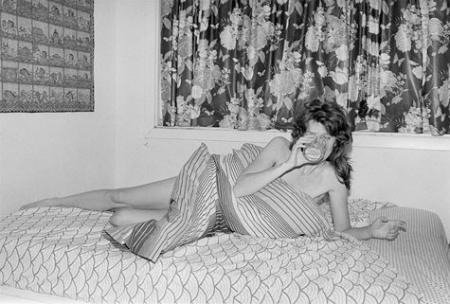Henry Wessel
dal 20/4/2011 al 7/7/2011
Segnalato da
20/4/2011
Henry Wessel
Pace / MacGill Gallery, New York
Vintage Photographs. From stretches of dusty highway to modest California bungalows framed by telephone poles and palm trees, Wessel's often spare and solitary images capture the idiosyncrasies and irony of American life with a wry objectivity.

Pace/MacGill Gallery is pleased to present "Henry Wessel: Vintage Photographs". The exhibition marks Wessel's first show at the gallery and features over 30 vintage gelatin silver prints made between 1968 and 1987.
Since the 1960s, Wessel has photographed vernacular scenes of the American West, particularly in California. Immediately drawn to the quality of light he encountered during a visit from New York to Los Angeles, Wessel moved cross-country to the San Francisco Bay Area in 1971. From stretches of dusty highway to modest California bungalows framed by telephone poles and palm trees, Wessel's often spare and solitary images capture the idiosyncrasies and irony of American life with a wry objectivity. His photographs of parking lots, beach-goers, and shrubbery - all illuminated by the brilliance of Western light - find beauty and intrigue in the commonplace and document the social landscape in a manner that is casual yet formally compelling.
Taking interest in the medium during the rise of documentary photography, Wessel was influenced by such noted practitioners of the genre as Walker Evans and Robert Frank. Following in their tradition, he set out on several road trips across the country to document his findings. Unlike the well-known Western landscape photographers Ansel Adams or Edward Weston, Wessel was uninterested in capturing idealized, uninhabited views of nature. Instead, he recorded man's mark on the American West through images frequently imbued with an element of wit. Wessel's deadpan and often ironic sensibility can be found in "Walapai, Arizona", 1971, where a barren Arizona desert is marked solely by a small white sign reading "Ice." In "Golden Gate Park", 1982, a picturesque couple sits in a row boat surrounded by the lush greenery of a lake. Upon reading the photograph's title, however, the viewer realizes that both the lake and park are a manmade oasis in the urban setting of San Francisco.
While photographers preceding him, including Wessel's mentor Garry Winogrand, traditionally pushed their prints to the darker end of the tonal spectrum, Wessel developed an aesthetic that was based upon the lighter, brighter part of his materials' tonal range to make his photographs look like they were literally lit from within. By over exposing and then under-developing his negatives, Wessel produced prints that exploded with light. Today, as technologically-minded photographers move away from analogue processes, it is interesting to observe Wessel working in a manner now emulated by digital methods.
Wessel (b. 1942, Teaneck, N.J.) received a BA from Pennsylvania State University in 1966 and an MFA from the Visual Studies Workshop at the State University of New York at Buffalo in 1972. His photographs can be found in public and private collections worldwide, including the Art Institute of Chicago; the Center for Creative Photography, Tucson, Ariz.; the International Museum of Photography at George Eastman House, Rochester, N.Y.; the J. Paul Getty Museum, Los Angeles; the Metropolitan Museum of Art, New York; the Minneapolis Institute of Arts; the Museum of Fine Arts, Boston; the Museum of Fine Arts, Houston; the Museum of Modern Art, New York; the Philadelphia Museum of Art; the San Francisco Museum of Art; the Tokyo Metropolitan Museum of Photography; and the Victoria and Albert Museum, London.
He is the recipient of two John Simon Guggenheim Memorial Fellowships (1971, 1979); two National Endowment for the Arts Fellowships (1975, 1977); and a National Endowment for the Arts Survey Grant (1978). He is a resident faculty member of the Photography Department at the San Francisco Art Institute.
Wessel lives and works in Point Richmond, California.
Image: Henry Wessel: Untitled, 1982
gelatin silver print, 12 1/16 x 18 1/16 inches
© Henry Wessel
Pace/MacGill Gallery
32 East 57th Street, 9th floor 10022 New York, NY
Opening Hours: Tues-Fri 9:30 am - 5:30 pm, Sat 10 am - 6 pm



